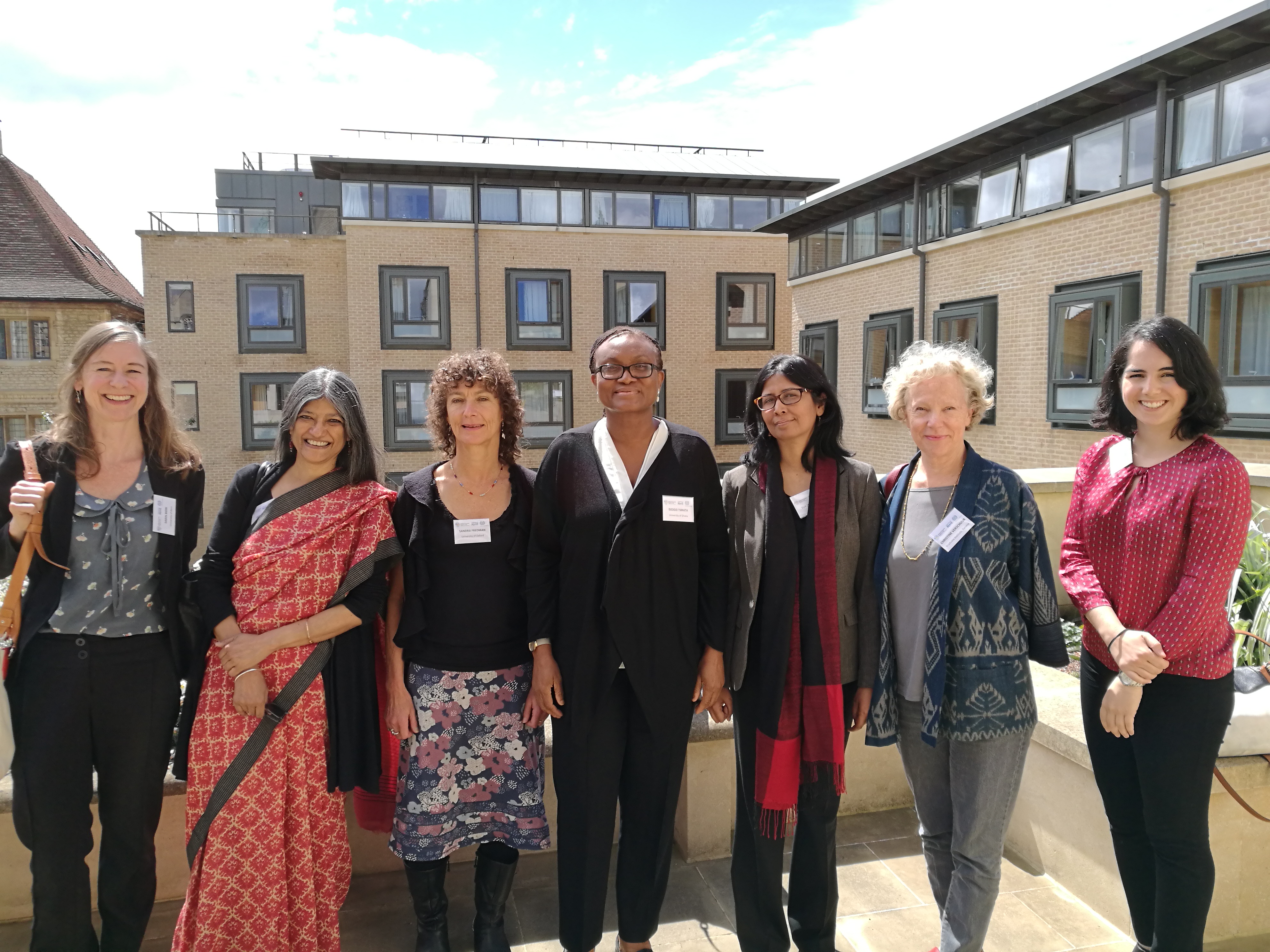Trinity Term update from OxHRH

The OxHRH has had an exciting and active Trinity Term. On 18 and 19 May, we hosted an international conference on A Better Future for Women at Work, in partnership with the International Labour Organization and the University of Kent. The lively discussions, with speakers from many different parts of the world moved beyond traditional debates. For example, our discussion of informal working included the potential of zoning regulations to improve working conditions for informal women workers. Our panel on violence looked at how work place strategies can be used to protect women from gender-based violence. The conference began the process of developing transformative legal and policy strategies to ensure that work leads to a better future for all women. The findings of the conference will be drawn together for publication. In the lead up to the conference, the OxHRH published a special blog series drawn from the conference papers, which have been viewed over 20,000 times on Twitter. We are planning a further blog series, which is likely to attract similar levels of interest.
One of the OxHRH’s central goals is to foster a community of human rights scholars. On 25 April, we hosted our third annual Human Rights Graduate Student Workshop. At the half-day workshop, MPhil/MSt and DPhil students presented their research in progress and received supportive feedback from members of Faculty. This was an invaluable opportunity to come together to enrich legal research through constructive dialogue and explore the latest developments in human rights. Thank-you to all who devoted their time to making this event such a big success!

Our RightsUp #RightNow podcast series, produced by Dr Kira Allman, continues to offer insightful human rights analysis into the latest headlines. In podcasts recorded in the past term, historian Dr Anne Hanley (University of Oxford) explores the gender and social implications to prevent the spread of contagious diseases. In the lead up to the General Election on 8 June, Keir Stamer MP advocates for robust human rights protection under the Human Rights Act. Both Carol Sanger (Colombia University) and Corey Stoughton (Advocacy Director, Liberty and previously Assistant Attorney General for Civil Rights in the US Department of Justice) consider how the Trump administration might impact human rights in the US. Carol Sanger explores why abortion is such a prominent political issue and discusses the future of reproductive rights. Corey Stoughton assesses the expressive and transformative effect law can have in the struggle for the recognition of transgender rights. All of these podcasts have been listened to on Soundcloud over 150 times.
The OxHRH Blog continues to provide cutting edge analysis on new human rights problems. This term on the blog we have covered an impressive area of global issues: the controversial decision of the Court of Justice of the European Union on headscarves, the death sentences handed down in the Delhi gang rape case, the links between land dispossession, security of tenure and human dignity drawn by the South African Constitutional Court and Tunisia’s decision to allow direct access to the African Court on Human and People’s Rights. In a series of blog posts, Alison Young analyzes the White Paper on The Great Repeal Bill planned for the post Brexit era. These posts have been referred to by the All Party Parliamentary Group on the Rule of Law.
The OxHRH team has been hard at work filming for our online course Learning Lessons from Litigators: Realizing the Right to Education Through Public Interest Lawyering. In Oxford, we have filmed Saraph Sephton (Legal Resources Centre), Ann Skelton (Centre for Child Law) and Tembeka Ngcukaitobi (leading South African litigator). At the launch of Open Society Foundations Strategic Litigation Impact Report in Brazil in April, we filmed Cameron McConnachie (South Africa), Kiran Bhatty (India), Nurina Ally (South Africa) and Thiago Ampara (Brazil). This month, we will be filming Michael Rebell (US). Over the summer months, we will be editing the course to launch at the beginning of the academic year.
Our high level workshop on the implications of Brexit for equality law attracted a lot of interest from stakeholders and policy-makers, but unfortunately had to be postponed because of the purdah period in the run-up to the election. But we will be running it in September.
As always, we are incredibly grateful for all the hard work of the members of our team, the pro-bono support from Carli Schoeman and The Bakery Ideas and to the financial support from the Bertha Foundation, the British Academy, Open Society Foundations, Hart Publishing and OUP, as well as the University of Oxford and the ESRC.

